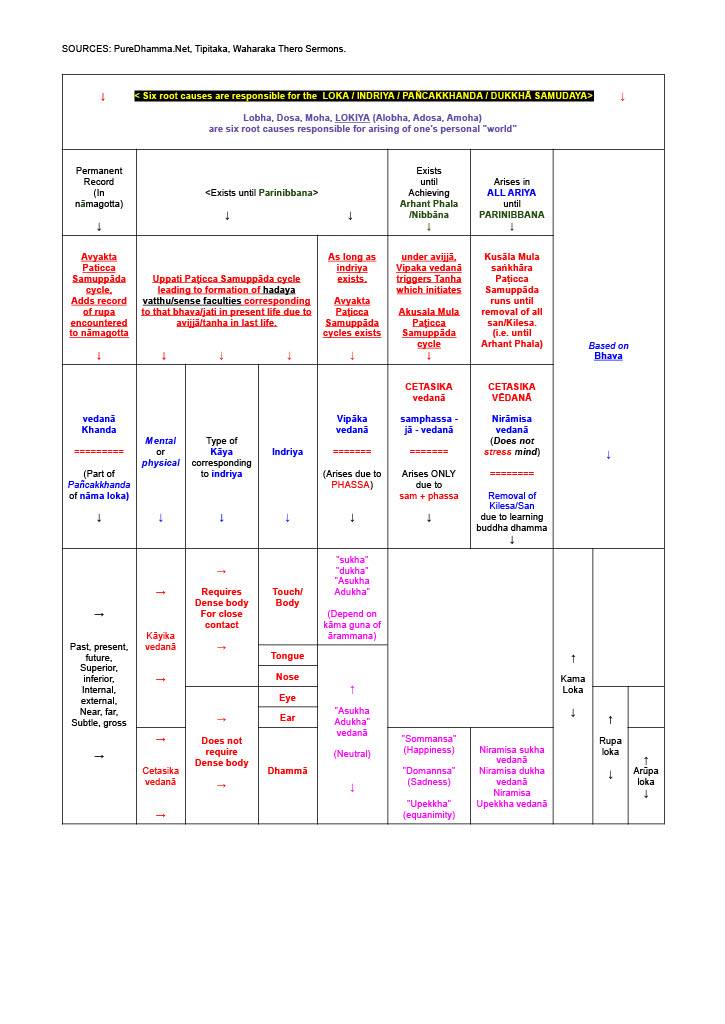- This topic has 5 replies, 4 voices, and was last updated 3 years ago by
Lal.
-
AuthorPosts
-
-
October 17, 2022 at 6:33 am #40957
Lal
KeymasterThe following chart is from LayDhammaFollower.
I am quite happy to see that he is making good progress.
– Please make comments/suggestions to improve the chart.Download pdf: “Vedana Vibhanga”

-
October 17, 2022 at 8:02 am #40960
Jorg
ParticipantNice chart.
I do wonder about something. All the arrows point to follow-up sections.
The lokas at the bottom right all have arrows pointing up and down. What’s the function of the down arrow then?
And why is there a big open square left of that?
I’m not familiar with charts such as these, so perhaps I’m missing the point here. -
October 17, 2022 at 8:53 am #40961
y not
ParticipantThose three pairs of ‘up-and-down’ arrows are not follow-up sections. They indicate the vertical range of
what is applicable to the left of them horizontally (according to the three lokas) delineated by the horizontal black lines.The large ’empty’ rectangle results of necessity…..as do the two smaller ones to the right.
-
October 17, 2022 at 7:03 pm #40985
LayDhammaFollower
ParticipantHi, Jorg.
Yes, reply from “y not” is correct.
Big square = empty because both nirāmisa vedanā and samphassa-jā-vedanā are mind made, they originates in mind. Hence, those three types of nirāmisa and three types of samphassa-jā-vēdanā belongs to dhammā indriya only.
Up and down arrows in bhava section denotes range of indriya.
In kama loka = all vēdanā are possible in kama loka, as all senses are available.
In Rupa loka = only eye, ear and dhammā indriya available, hence, number of vedanā reduced.
Again in Arupa loka = only dhammā indriya is there.
Also, all vipakā vedanā except those originating from body/touch are strictly neutral in beginning. However, vipakā vedanā originating from body might be of three types: sukha (pleasent; example: experiencing cool winds in summer), dukha (unpleasant; Example: Experiencing heat in summer, having bodily illness of various types), adukha adukha vedanā (neutral; example. Just seating on chair for some short time.).
Hence, the up down arrows under vipakā vedanā.
Please comment if you have any further questions.
-
October 17, 2022 at 10:45 pm #40991
Jorg
ParticipantThanks guys, that makes sense now.
-
October 18, 2022 at 6:54 am #40994
Lal
KeymasterI did not get a chance yesterday to look at the discussion. I have revised a couple of posts related to this discussion:
-
-
AuthorPosts
- You must be logged in to reply to this topic.

